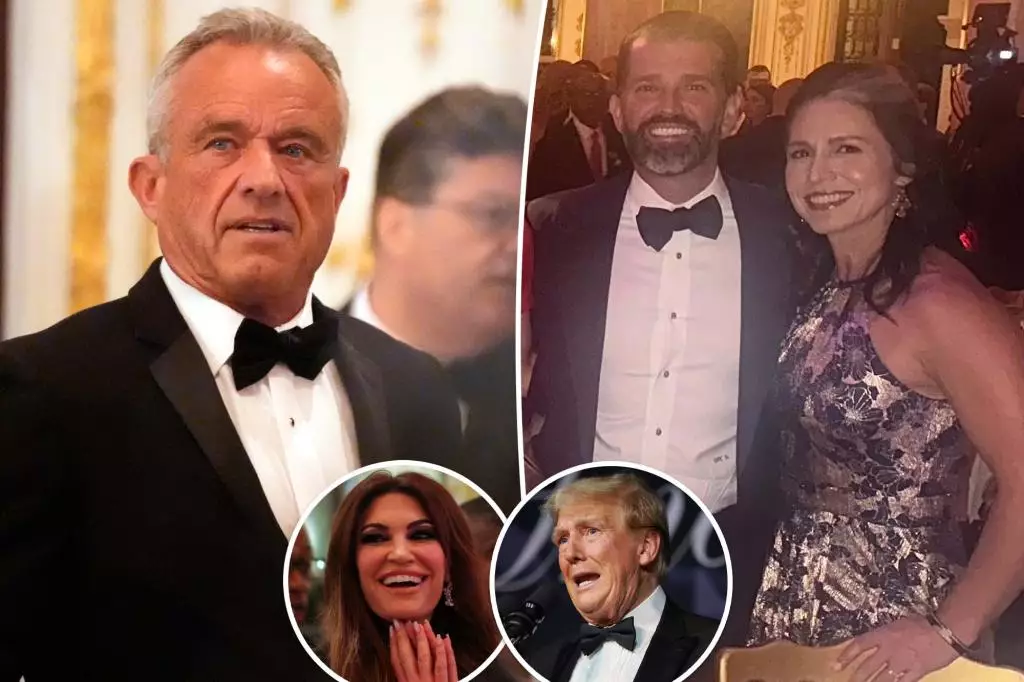On a vibrant night in Palm Beach, Florida, the opulent Mar-a-Lago club became a nexus of political alignment and celebrity admiration as Donald Trump gathered his newly appointed cabinet picks for a celebratory gala. Among those spotted were Robert F. Kennedy Jr., poised to be the Secretary of Health and Human Services, and Tulsi Gabbard, a former Democrat turned Republican, who is expected to take the role of Director of National Intelligence. Their presence at such a high-profile event reflects not only their support for Trump’s administration but also the unfolding narrative of a reshaped political landscape.
The highlight of the evening was undoubtedly Trump’s address, which was introduced by none other than Sylvester Stallone, a Hollywood icon. Stallone, renowned for his larger-than-life roles, drew a fascinating parallel between Trump and George Washington, asserting that Trump is a “second George Washington.” This resonated with many attendees, emphasizing the significant position Trump holds in reshaping American politics. The choice of Stallone, a figure synonymous with American machismo and resilience, to extol the virtues of Trump suggests that the synergy between celebrity culture and politics continues to thrive, presenting Trump as both a populist leader and a mythic character.
The gathering also included notable figures like Matt Gaetz, Trump’s nominee for Attorney General, and influential philanthropists such as Omeed Malik. The presence of these power players indicates a strategic consolidation of political alliances, further suggesting that Trump is keen on surrounding himself with individuals who not only align with his vision but also command substantial influence and resources. The shared table with Kennedy and Gabbard, both of whom represent shifting dynamics within their respective parties, illustrates a unique moment in American political history, where partisan lines are increasingly blurred.
The evening was emblematic of a broader movement within the Republican Party, seeking to bridge traditional divides and unite under the banner of a redefined conservatism. With one eye on past successes and another on the future, the gathering symbolized a potential new chapter in Republican leadership that embraces diverse voices—something Gabbard has often been vocal about. Trump’s cavalier mention of potential nominees like North Dakota Gov. Doug Burgum for Secretary of the Interior further invigorates speculation about his intent to craft a diverse and inclusive cabinet.
While the specifics of the evening’s meal remained undisclosed, it remains an important detail for observers interested in the dietary preferences of the key figures involved. Speculations about what adorned the tables may seem trivial, yet they underline the blending of culture, cuisine, and politics—elements that often shape public perceptions of leadership.
The Mar-a-Lago gala presented a microcosm of contemporary American politics—a mixture of celebrity influence, strategic realignments, and the continuous evolution within party platforms. As the political landscape continues to shift, events like this will be crucial in shaping the narratives that surround Trump’s upcoming tenure.
